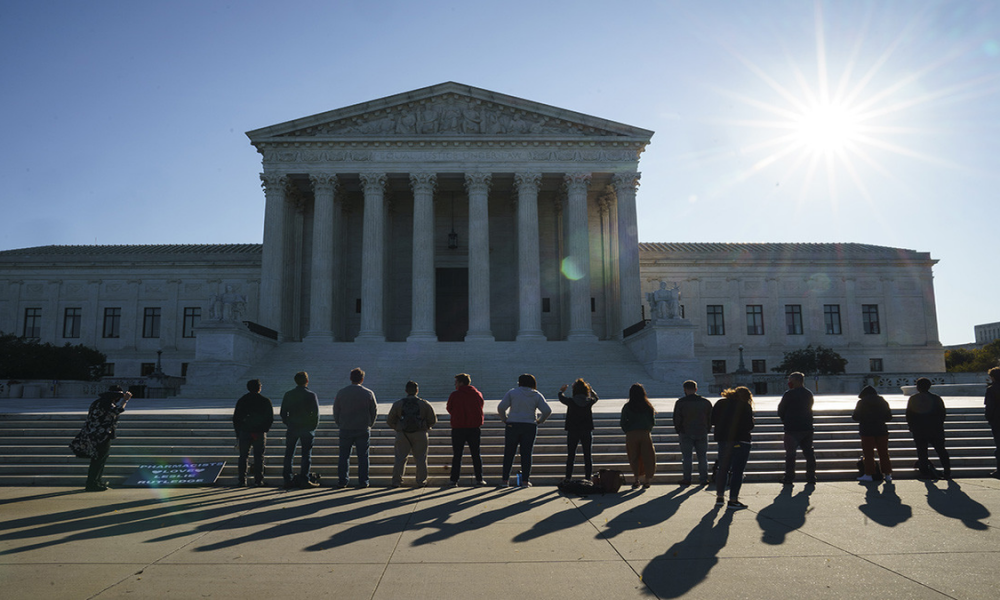The case directly challenges Roe v. Wade, a 1973 decision that legalized abortion nationwide.
What We Know:
- Justices will likely hear the case, Dobbs v. Jackson Women’s Health Organization, in the fall. The lawsuit focuses on a 2018 Mississippi law that bans all abortions, “except in a medical emergency or in the case of a severe fetal abnormality,” after 15 weeks. Lower courts blocked its passing, stating that it violated previous Supreme Court rulings.
- The state finally took the lawsuit to the Supreme Court last summer after the U.S. Court of Appeals for the 5th Circuit also rejected the law. Judges dismissed Mississippi’s claim that the Court of Appeals must determine if the Supreme Court’s abortion cases create a “substantial obstacle” for people seeking to abort an unviable fetus and suggested one could decide to abort the fetus before the 15th week. However, the U.S. Court of Appeals stressed the law doesn’t merely restrict pre-viability abortion availability, it bans them.
- When Mississipi went to the Supreme Court, it asked the justices to conclude whether or not pre-viable abortion restrictions are unconstitutional. They also asked the justices to opine on two other questions: if courts should consider a state’s interests, such as protecting a mother’s health, when reviewing the constitutionality of pre-viability abortion bans, and if abortion providers can legally challenge laws that ban or restrict abortions on behalf of their patients.
- Jackson Women’s Health Organization, Mississippi’s only licensed abortion provider, urged the Supreme Court to not interfere. The provider emphasized that the institution has long held that pre-viable abortions are constitutional. It also suggested the court deny reviewing the question of whether abortion providers can sue the state. The clinic reported that Mississippi “waived this challenge — it was not raised below and the State, in fact, conceded jurisdiction and does so again in its petition.”
- The justices repeatedly rescheduled the case before considering evaluating the state’s petition during their Jan. 8 conference. They kept contemplating the appeal 12 times before announcing they would analyze the first question.
- According to the Washington Post and Politico, the Supreme Court’s vote to analyze this question puts Roe at risk, as Republicans hold a 6-3 majority in the group. Several of them have already expressed their opinions on abortion laws, with new Justice Amy Coney Barrett voting twice to support abortion restrictions prior to her appointment. In addition, Justices Neil Gorsuch and Brett Kavanaugh elected to close two of Louisiana’s three abortion clinics; the law did not succeed, as Chief Justice John Roberts sided with the Supreme Court’s liberals. However, Politico writes that the picking up of Mississipi’s request by the Supreme Court suggests they may eliminate or curtail the right to terminate a pregnancy.
- As of right now, Alabama, Arizona, Arkansas, Michigan, Mississippi, New Mexico, Oklahoma, West Virginia, and Wisconsin’s lawbooks, still include their unenforced abortion conditions. Therefore, if the Supreme Court ever overturns Roe, the states could enact their old laws.
Since Dobbs’ analysis begins in the fall, a determination could be made by summer 2022.



